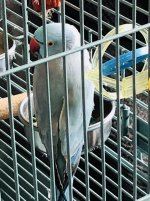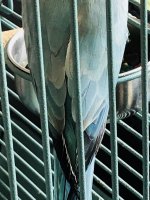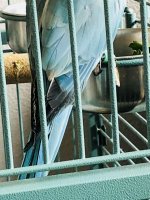Italianvixen11
New member
I’m not sure I’m in the right spot for this post. I am a new IRN mom. His name is Sage. He recently went through a molt and now his wing tip are turning black and I’ve noticed what seems to be bronzing. Does anyone agree with this and what should I do? I can’t get him to the vet until October. Other than his coloring he seems to be fine and active. He is not tame but we are working on that. Have finally gotten him to accept food from the hand outside his cage.
I have read about lighting and will be getting a bird light for him soon. I have finally gotten him to eat pellets but he will only eat them if they are soft so I soak them in some water (which he loves drinking). I only leave those in there for a few hours.
Please any advice or opinions would be great. I’ve only ever had cockatiels and I was unaware of the necessity for specific lighting when it comes to IRNs.
I have read about lighting and will be getting a bird light for him soon. I have finally gotten him to eat pellets but he will only eat them if they are soft so I soak them in some water (which he loves drinking). I only leave those in there for a few hours.
Please any advice or opinions would be great. I’ve only ever had cockatiels and I was unaware of the necessity for specific lighting when it comes to IRNs.


